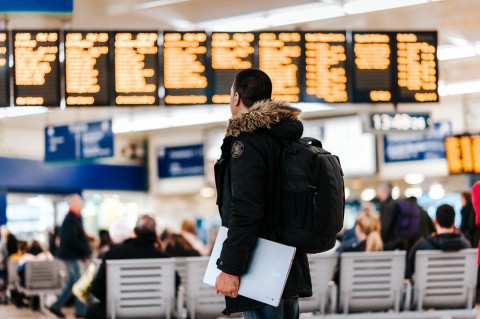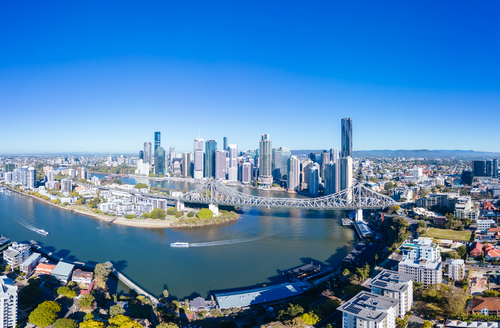Today marks the final day that new invitations for the subclass 489 visa will be issued. With the new subclass 491 visa beginning on 16 November 2019, we farewell the subclass 489 and look ahead to what the future holds.
A short history of the subclass 489 visa
The subclass 489 visa was introduced in September 2015 when it replaced the Skilled – Regional Sponsored visa (subclass 475). Despite several other name changes over the years and minor tweaks, the key characteristics of all these visas is that they are:
- Provisional with a pathway to permanent residency;
- For specified regional areas of Australia only; and
- Require state/territory nomination or family sponsorship.
Timeline of changes
| Period | Visa name |
| September 2019 onwards | Skilled Work Regional (Provisional) subclass 491 visa |
| September 2015 to September 2019 | Skilled Regional (Provisional) subclass 489 visa |
| September 2007 to September 2015 | Skilled – Regional Sponsored subclass 475 visa |
| Late 1990s to September 2007 | Skilled- Independent Regional (Provisional) subclass 495 visa: |
The new subclass 491 visa
What are the major differences between the subclass 491 visa and the subclass 489 visa?
The biggest change is that the holders of the new subclass 491 visa will have to wait at least three years before they are eligible for permanent residency, an increase from two years for subclass 489 visa holders.
On the positive side, subclass 491 visa holders will have access to more regional areas. Perth, the Gold Coast, Newcastle, Wollongong and the NSW Central Coast will now be eligible.
There are also changes to the points test happening at the same time, which will be beneficial. There is an increase in points awarded for state nomination or family sponsorship (from 10 to 15), partner skills (from 5 to 10), partner English (from 5 to 10) and selected STEM occupations (from 5 to 10). Applicants without a spouse or de facto partner will receive an additional 10 points.
What is staying the same?
The new subclass 491 visa, just like the subclass 489 visa, is a provisional regional visa that requires nomination from a state of territory government or from an eligible family sponsor.
As the name suggests, the new 491 visa still only allows you to live and work in designated regional areas of Australia - defined as all areas of Australia except the metropolitan areas of; Sydney, Melbourne, Brisbane, Gold Coast and Perth.
The new subclass 491 visa will still provide a good pathway to permanent residency via the new Permanent Residence (Skilled Regional) subclass 191 visa.
Are there any unknowns?
There has been information from the Department of Home Affairs to indicate that more skilled occupations will be eligible under the subclass 491 visa, but we are yet to see the details of this. We also do not know of this will mean more occupations being offered by the nominating state and territory governments as well.
We do not know which occupations will be still available on each state or territory list by the time the subclass 491 opens. As applications for the subclass 190 visa remain open, occupations may become unavailable over the next few months.
When will I be able to apply?
You can lodge a visa application from 16 November 2019 with the Department of Home Affairs. But unless you are using the family sponsored pathway, you will also need to apply for a state or territory nomination which will also open for applications from 16 November 2019.
What can I do to get ready?
Just like the subclass 489 visa, the new subclass 491 visa will have certain requirements that will need to be evidenced, some of which take time to organise. Some things you can start planning now include:
- Obtaining a positive skills assessment is the key to your application, and while occupation eligibility will not be known until application systems open, having this ready will be a major plus.
- Obtaining the highest possible English test result will put you in the best position to score the most points.
- If you are onshore and have work rights, getting experience in a job that closely matches your skills assessment could be beneficial as many jurisdictions have this a pathway to access more occupation.
The State or Territory nomination requirements are likely to be similar to those that are currently in place for the 489 visa. While State and Territory nomination requirements do vary, there are some common themes that can enhance your eligibility:
- Graduating from an institution in the State or Territory - currently available in South Australia, Tasmania, ACT (PhD), Northern Territory, Western Australia, and Queensland (Masters or PhD).
- Being currently employed in the State or Territory - currently available in South Australia, Tasmania, ACT, Northern Territory, Victoria, and Queensland.
- Have an immediate family member living in the State or Territory - currently available in South Australia and Tasmania.
By researching these requirements now and having these ready by 16 November, it will put you in a greater position to apply. Work Visa Lawyers can help you navigate this and provide an eligibility assessment before advising you to proceed with a visa application.
Do you need help with an Australian visa application?
At Work Visa Lawyers we are experienced in assisting applicants in all matters relating to Australian visa applications. Our areas of expertise include Partner Visas, Skilled Migration visas, Business Skills Migration visas, Employer Sponsored Work Visas and other Family Migration visas as well as the Administrative Appeals Tribunal (AAT) Review, Judicial Review and Ministerial Intervention.
If you require further information regarding your Australia visa options you can contact us through:
(08) 8351 9956 or +61 8 8351 9956 or This email address is being protected from spambots. You need JavaScript enabled to view it.









